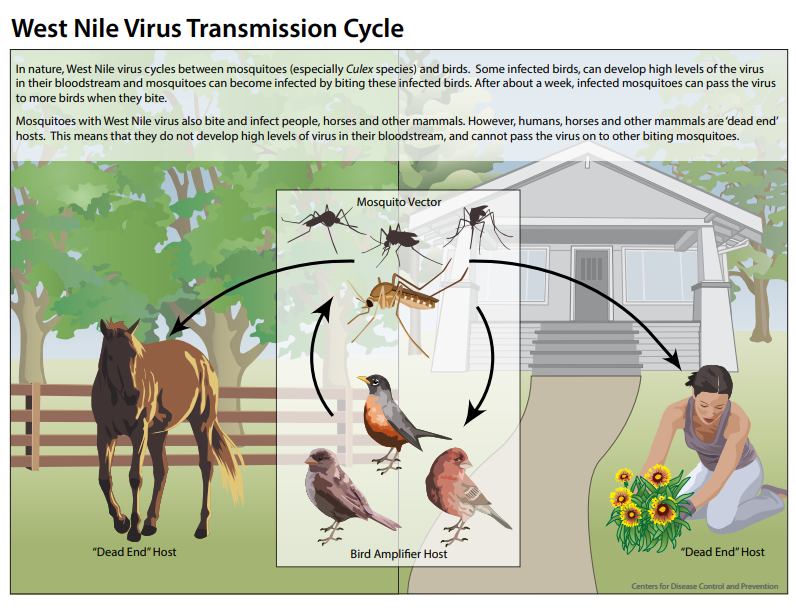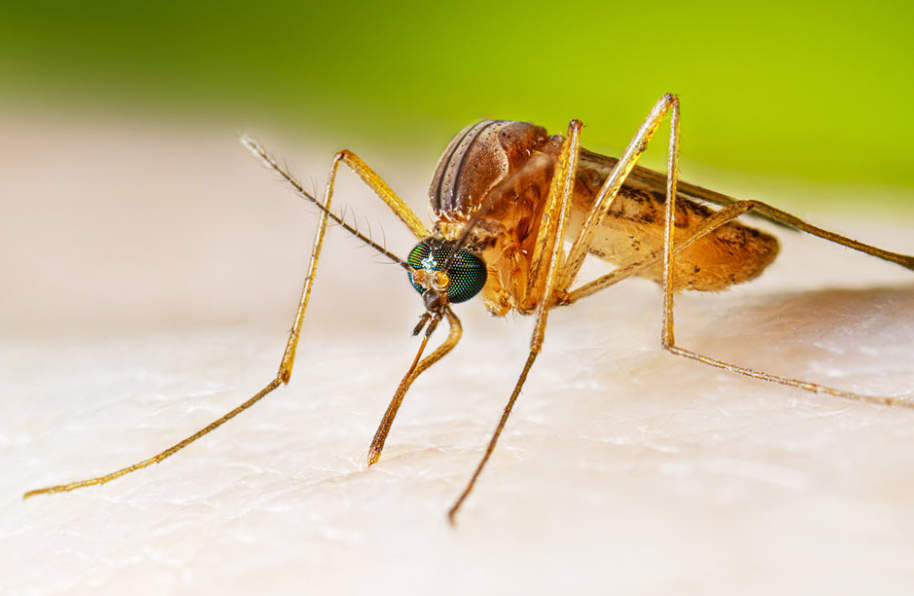Georgia and South Carolina state health departments are reporting human cases of West Nile Virus, a mosquito-borne virus that spreads from infected birds.
A Sept. 12 press release from the South Carolina Department of Health and Environmental Control said one person has died from it. The person lived in the Midlands region, but the specific county was not released.
The West Nile Virus first appeared in North America in 1999. It is spread by mosquitos that become infected when they feed on birds with the virus. Mosquitos can spread the virus to humans and other animals, including dogs, cats and horses. Although there is a vaccine for horses, there is no vaccine for humans and other animals.
“In terms of severity, what’s been reported is that probably 80% of humans that get infected with West Nile virus, have an asymptomatic case. In other words, they don’t even know we got infected,” said Dr. Rodger MacArthur, an infectious disease specialist at Augusta University Health. “Twenty percent are symptomatic, and that’s flu like syndrome, a fever, headache. Relatively few of them require hospitalization. But if hospitalization is required, there is some reasonable mortality associated with it. But overall, the mortality is currently estimated at around two or 3%.”
DHEC said, if infected, the symptoms should appear within two to 14 days.
“If you develop fever or other symptoms after being bitten by a mosquito, you should contact your health care provider immediately,” said Dr. Linda Bell, South Carolina State Epidemiologist.
MORE: COVID and monkeypox rates starting to decline

MacArthur said there is no vaccine to protect against it, nor is there a medication to treat it.
“I can imagine, though, the frustration of somebody who gets infected and realizes that, well, why isn’t there a vaccine? Why isn’t there a medication either intravenous or orally? Like we’ve developed against SARS-CoV-2? I guess the simple answer is we only have a handful of cases in any particular state every year. But it is — it’s devastating when it happens, and you get very sick with it,” he said.
In 2022, Georgia has reported five human cases and no deaths. South Carolina has had 11, including six in Richland County, and the one death so far in 2022.
There is another, more lethal mosquito-borne virus that has had confirmed cases in humans and horses in Georgia and South Carolina in the past decade.
“Eastern Equine Encephalitis, or Triple E as you call it, is the really bad one. It’s the one you don’t want to get. It has somewhere in the range of almost 50% mortality. And all of those that survived, substantial numbers are left learning impaired or some sort of severe neurologic injury,” said MacArthur.
The CDC said in 2020, the latest year available, there were no cases of Triple E in Georgia and just one in South Carolina. Nationwide there was a total of 13 cases, down from the 38 reported in 2019.
Just as with WNV, MacArthur said there is no vaccine and no medication to treat Triple E.
He said prevention is the best way to avoid a mosquito-borne virus, beginning with applying an approved repellant on your skin. You should also remove sources of standing water on your property, including flowerpots, buckets, pool covers, birdbaths and old car tires.
More information is available at https://www.cdc.gov/westnile/ and https://www.cdc.gov/easternequineencephalitis/index.html.
Dana Lynn McIntyre is a general assignment reporter for The Augusta Press. Reach her at dana@theaugustapress.com










